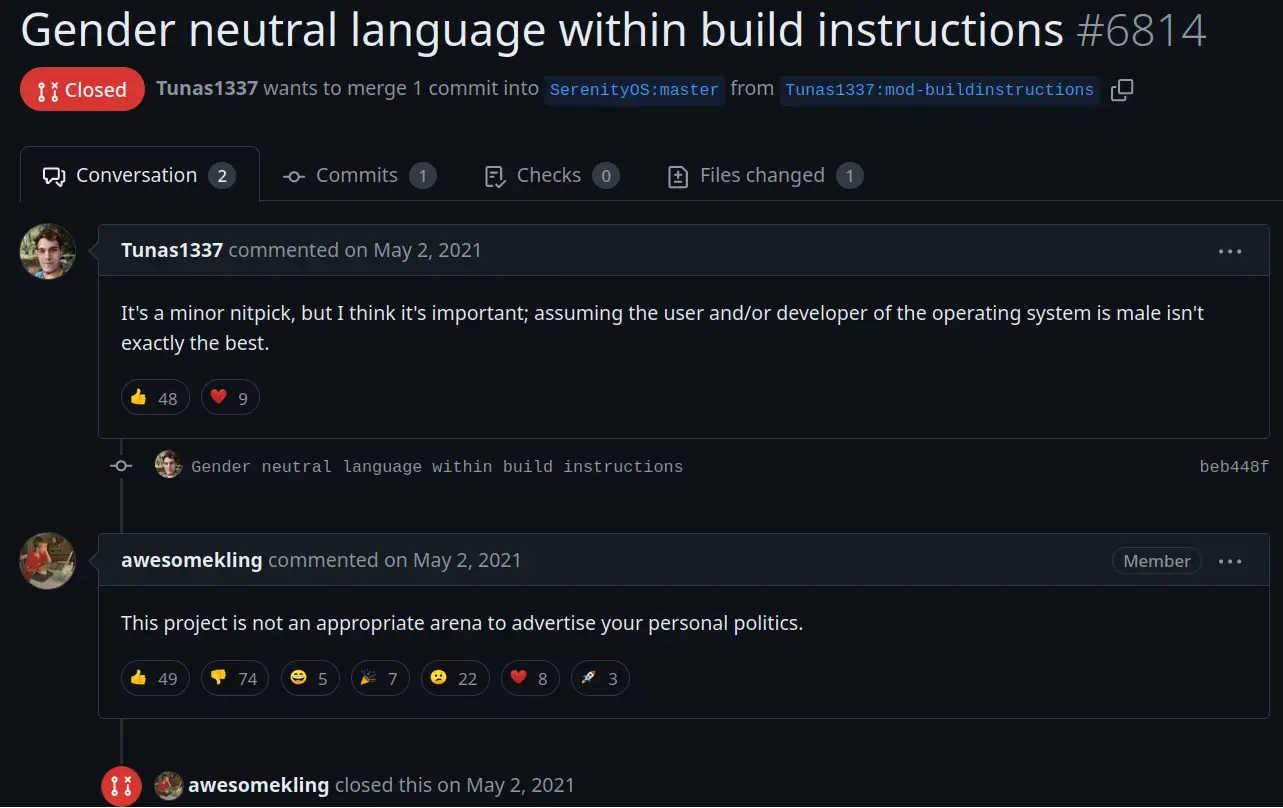- @0x815@feddit.org English
- •
- www.themoscowtimes.com
- •
- 6h
- •
- @0x815@feddit.org English
- •
- www.euractiv.com
- •
- 2d
- •
- @0x815@feddit.org English
- •
- www.usip.org
- •
- 2d
- •
- @0x815@feddit.org English
- •
- www.climateaction.org
- •
- 3d
- •
- @millie@beehaw.org English
- •
- 5d
- •
 English
English- •
- www.wired.com
- •
- 14d
- •
 English
English- •
- cyberpunk.lol
- •
- 5d
- •
 English
English- •
- www.core77.com
- •
- 12d
- •
- @12345671@lemdro.id English
- •
- viewber.co.uk
- •
- 14d
- •

- •
- www.volts.wtf
- •
- 15d
- •
- @noodlejetski@lemm.ee English
- •
- www.wired.com
- •
- 16d
- •
- @0x815@feddit.org English
- •
- www.straitstimes.com
- •
- 4d
- •
Technology
!technology@beehaw.orgRumors, happenings, and innovations in the technology sphere. If it’s technological news or discussion of technology, it probably belongs here.
Subcommunities on Beehaw:
This community’s icon was made by Aaron Schneider, under the CC-BY-NC-SA 4.0 license.
- 0 users online
- 19 users / day
- 115 users / week
- 715 users / month
- 2.99K users / 6 months
- 1 subscriber
- 2.78K Posts
- 61K Comments
- Modlog
Beehaw
Aspiring to be(e) a safe, friendly and diverse place.
We’re a collective of individuals upset with the way social media has been traditionally governed. A severe lack of moderation has led to major platforms like Facebook to turn into political machinery focused on disinformation campaigns as a way to make profit off of users. Websites with ineffective moderation allow hate speech to proliferate and contribute to the erosion of minority rights and safe spaces. Our goal with Beehaw is to demonstrate and promote a healthier environment.
Our philosophy:
- What is Beehaw?
- The spirit of the rules
- Beehaw is a Community and more on our Docs Website
Downvotes are disabled on this instance.
Be(e) nice.
As a news aggregator and a social media outlet, with a focus on being a safe and accepting space, we strive to create a positive social impact. We will, also, help to connect underprivileged and minority individuals with education and civic participation by promoting a healthier online experience.
We currently have a Mastodon account you can follow for major updates: @beehaw at hachyderm.io. You can also join our community Discord or Matrix servers. You can also view our status page.
Our instance is 100% user-funded - help us keep it running by donating.
If you donate, you should know that 100% of the costs will go towards server time, licensing costs, and artwork.
In the future if we need to hire developers or other labor, it would be sourced through the Open Collective Europe Foundation, and it would be transparent to the community before any changes were made.
Our community icons were made by Aaron Schneider under the CC-BY-NC-SA-4.0 license.
Blobbee emojis made by olivvybee on Github.
Our most up to date FAQ can be found here.














































